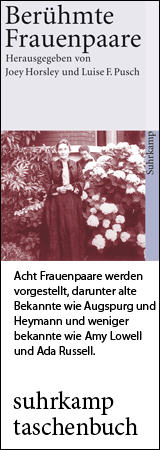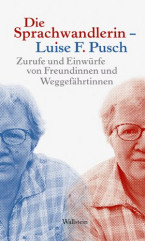
born on March 16, 1924 or 1928 in Berlin, Germany
died on April 24, 2021 in Klosterneuburg, Germany
100th/96th birthday on March 16, 2024
German singer
Biography
“I never fooled myself - and I never cheated at cards,” she assures us, and we are happy to believe her. Nevertheless, the question remains as to her real age and year of birth. Was it 1924 or 1928? Both dates can be found in the online and offline biographies. Let's simply congratulate her on an unprecedented operatic career spanning almost half a century at the world's leading opera houses in Berlin, Vienna, Munich, Milan, Paris, London, Chicago and New York.
Christa Ludwig made her first public appearance in 1946. The extent to which she shaped not only the German classical music scene as a sought-after mezzo-soprano can fortunately be heard in numerous audio, DVD and video recordings, some of which were in private hands and released later. This applies first and foremost to her performances as opera singer from the late 1950s until her last stage appearance at the end of 1994 as Klytemnestra in Strauss' Elektra at the Vienna State Opera, where she was an indispensable principal artist for almost forty years, taking on over 40 singing roles (of her total of 70) in almost 800 performances.
She was also a wonderful singer of an extensive song repertoire as well as solo parts in symphonic works, oratorios, masses and cantatas with recordings from international concert halls and studios - and with recordings from the farewell tour that lasted almost two years where she performed songs by the composers Franz Schubert, Hugo Wolf, Gustav Mahler and Richard Strauss, who were particularly important to her, as well as Leonard Bernstein's “I hate Music.”
Her last appearances were in Salzburg and at the Wiener Concert-Verein in April 1994. In the same year, she also made two studio recordings in Athens that were not released until 2008: a similarly mixed program of songs and her surprising, indeed (for some) disturbing female version of Schubert's Winterreise, with Charles Spencer at the piano. Traditionally, Schubert's cycle is considered to have been composed for a man / male voice. She first sang this cycle in Salzburg in 1980 and then recorded it with one of her conductor-accompanists, James Levine, in the United States in 1986; this second recording with a female singer, almost 50 years after the first with Lotte Lehmann, was not released until 1988. Christa Ludwig noted that although the traveler sings of his “Liebchen” (sweetheart), it is increasingly more and more about the “thoughts of a lonely person who is searching for a purpose and experiencing life’s many vicissitudes.” The great loss he has experienced is merely the trigger “for his soul to set off on a journey into the icy realms of his own winter. Not only a man can experience this. ... Whether man or woman, the singer must embark on this journey of the soul and take the listeners along.” Such fundamental considerations naturally also shed light on her 'trouser roles' such as Cherubino in Mozart's Marriage of Figaro or as Octavian in Strauss' Rosenkavalier, a somewhat “boring boy” in her opinion.
Christa Ludwig came from a family of professional singers. No wonder it was sometimes too much for her: “Listening to music is difficult,” she confessed in an interview in 2011. “I don't listen to operas at all, I find them all dreadful. I've heard too many operas: I was always at the opera as a child, my mother was a singer and my father was an opera director, stage director and singer. Yes, and then I became an opera singer. Because the only thing I could do was sing.” On top of that, she married the baritone Walter Berry in her first marriage.
Her mother, Eugenie Besalla-Ludwig (1899-1993), contralto and her daughter's first and most important teacher, was undoubtedly central to Ludwig's career. She explained in her autobiography: “I learned how to work in a disciplined manner from my mother, who supported and accompanied my professional development for a good thirty years. Her rules of life still guide my life and my work to this day.”
Today, two decades after she retired from the stage, Christa Ludwig enjoys the good, normal life far from the limelight, without the constant packing of suitcases and constant worry about her vocal cords: “When I let out my last scream in the opera, it was snowing. ... I wanted to catch a cold in peace. For so long I had always had to take care of these stupid vocal cords! I opened my coat, exposed my neck and went out into the snow.”
Christa Ludwig died on April 24, 2021 in Klosterneuburg.
(Text from 2013, updated 2021, translated with DeepL.com; edited by Ramona Fararo, 2024.)
Please consult the German version for additional information (pictures, sources, videos, bibliography).
Author: Swantje Koch-Kanz
Quotes
Constant curiosity, impatience and a need for harmony - these are the foundations of the warm, humane tone that emanates from Christa Ludwig's voice as immanent to her being. She was never heroic, superhuman, oversized, but always incredibly warm-hearted and lively. Reading her interviews, one envies the interviewer for being able to speak to such an open, natural and brilliantly clever woman (although these qualities seem to become more pronounced with increasing age). (Jens Malte Fischer)
Adapting to life is also a certain form of intelligence. Everything has its time. (Christa Ludwig in an interview in 2011)
If you hold the rights to one or more of the images on this page and object to its/their appearance here, please contact Fembio.



